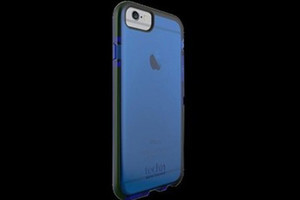
I’m sitting in the beer garden of The Sherlock Holmes Pub with a pint of ale in my hand, the big screen television is showing an English Premier League match. Foreign tourists and western businessmen are mixed among local men in their traditional clothing, also sitting in front of cold pints, and assessments are going on about Manchester United’s latest loss, and whether or not they should keep the manager, Jose Mourinho. As the sun - red and imposing - drops against the Manama city skyline, the now-familiar Call to Prayer reverberates through the tiny Arabian Peninsula kingdom of Bahrain. This is a typical snapshot of Bahraini life - a modern and progressive nation which still somehow holds true to its historical and religious traditions.
Bahrain Mosques
Around 85 per cent of the population of Bahrain is muslim while the remainder of the people are free to worship as christians, hindus and buddhists and other religions - and this tolerant attitude pervades the archipelago of 33 islands. The country’s mosques are the essence of life and culture for Bahrainis in their modern society but their approach to their dominant religion is more open and welcoming to the foreign visitor than from the more fundamentalist states. Visit most mosques outside of prayer time and local devotees are eager to show you around and explain the history of their religion and the philosophy behind the way they worship. The Grand Mosque, also home of the Al Fateh Islamic Centre, sits majestically on the main island of Bahrain and dominates the modern skyscrapers in the capital city, Manama. Its sheer scale can only be fully appreciated by walking its perimeter.
The 70m minarets are among the tallest in the world and the 60 tonne fibreglass dome gives the impression that this Mosque is a statement of how the Bahrainis feel for their main religion. The Islamic Centre offers free daily tours with a guide to explain the architecture and history of Islam. There was no hard-sell and no attempts at conversion and our guide for the morning, Rafi, was quite obviously proud of his local mosque which can allow up to 7,000 worshippers inside at once. It’s one of the few mosques in the world that allows female visitors to enter the building. The ornate chandeliers, massive windows, five tonne doors , peaceful courtyards and serene expanse of the Grand Mosque provided an overwhelming, yet relaxing, insight into Bahraini Muslim culture. It was also the perfect way to discard any pre-conceived ideas that Bahrain is simply a Middle Eastern stopover with a bit of shopping and some good restaurants, bars and busy nightlife.
A Brief History Of Bahrain
While neighbouring countries like Saudi Arabia have relied totally on oil for revenue, Bahrain has diversified somewhat and embraced tourism and banking. Around a third of the population is made up of expats, and with its relaxed entertainment laws Bahrain is also a popular weekend getaway for people from other Gulf nations. On their “weekend”, which in this region is Thursday and Friday, Saudis head across the 26km King Fahad Causeway into Bahrain for a little “R&R” from the strict laws in their own country. Bahrain is still a shoppers’ delight despite its recent popularity as a tourist destination with markets, or souks, operating in the shadows of modern buildings and the cosmopolitan nature of the restaurant and nightclub scene fools most visitors into believing it’s a flashy-but-quaint taste of the Middle East.
A look into the history of Bahrain reveals more than 5,000 years of civilisation - it was believed to have been a part of the mainland until around 6,000BC before “breaking away”. It was the site of the Dilmun trading empire at around 3,000BC which prospered for 2,000 years as a Bronze Age culture, and its strategic location and lush spring-fed greenery amidst an arid landscape led to the area acquiring mythical proportions to various cultures through ancient history. For the Sumerians, one of the world’s earliest civilisations in what is now southern Iraq, Bahrain was a holy island and the Babylonians mention the islands in the Epic of Gilgamesh . Some scholars say it is the site of the biblical Garden of Eden. Subsequent visitors include Greeks from the time of Alexander the Great in 323BC, Portuguese in the 16th century, and the English in the 1800’s and early 1900’s.
Bahrain Fort, The Souq
Despite a rich and vibrant history, international archaeologists have only recently begun digging up the past in Bahrain and one of the best examples of this can be seen at Bahrain Fort, a short drive west of Manama. It’s the biggest archaeological site in Bahrain and is actually the location for three separate forts from three different eras. It’s also known as the Portuguese Fort, which is the most recent and visible of the remains, and prior to that there was the Islamic Second Fort built between the 11th and 13th Centuries and the original dwellings which are believed to have been constructed in 2800BC. Negotiating your way around Bahrain Fort is relatively simple, but the same can’t be said for the main souk in Manama City. And as an antidote to the many western-style air-conditioned shopping malls throughout Bahrain, it’s an invigorating way to alert the senses.
Set in narrow, winding streets in the north of the city, The Souk as it’s simply known is where you’ll find pretty much anything from clothes to gold (a Bahraini specialty), fruit, fish, tobacco, traditional medicines, handicrafts such as baskets, rugs, pots and tapestries. It’s also one of the best places in the world to hone your haggling skills. I warmed up at a kitschy souvenir stand to acquire a wailing Mosque alarm clock and plastic singing camel - the ensuing haggle drew a small crowd of amused locals. Result: three dinars haggled down to two. Next was a trader named Ahmed selling jewellery. He does a good job at looking hurt when we haggle over a bracelet. “No, No No ... you make me go broke! 15 dinars.” Ahmed then jokingly makes a kind of choking noise and holds his chest as if he’s been stabbed through the heart when I suggest seven dinars. We settle on nine and everyone’s happy. And funnily enough his strong Arabic accent disappears once the deal is done and he speaks fluent English, as do most of the locals.
The souk is best done in the late afternoon or early evening (it’s closed on Fridays though) and is one of those experiences that definitely should not be rushed . At some stage your nose will lead you to the exquisite spice market with its rich aromas and vibrant colours. The Spice traders go to great lengths to outdo each other on the extravagance of their displays and clearly love their work - show even the slightest interest and they’ll take you on a “world spice tour”.
Horses And Camels
The Middle East has always been renowned for its love of horses over the centuries and Bahrain is no exception - a day at the races reveals how much locals love the “sport of kings”. Every Friday from October to March (the cooler months) the modern racetrack is filled to its 10,000 capacity to watch the locally-bred Arabian stallions, but you won’t see any arm-waving bookmakers - betting is illegal. Children sit along the rails and point out the horses they know and like as they’re paraded before each race - much like westerners with their own versions of human sports stars. On the same track, an even more traditional form of competition is held on a regular basis with camel racing, known as the Sport of Sheikhs, a hugely popular sport for the local people. For thousands of years camels were the most important of all animals to medieval Muslims and were used in caravans to travel the desert and in times of war because of their resilience and speed.
Camel racing embodies that ancient tradition and it’s now a fiercely competitive business - and they can cost between $600,000 and $1.5m each. Camel races in Bahrain begin around the first week of September. We were fortunate enough to be taken to a camel breeding farm by a local friend who has connections with the wealthy owner. And they clearly love their camels in this part of the world. “The females are much more beautiful than the male camels. Have a look,” says Mohammed, one of the handlers. He was right. And one other thing - the males are crankier and might take a bite out of you if you get too close. If you’re in Bahrain and you feel the need to pat a camel, make sure it’s a female.
- By:
- Ben Hall













